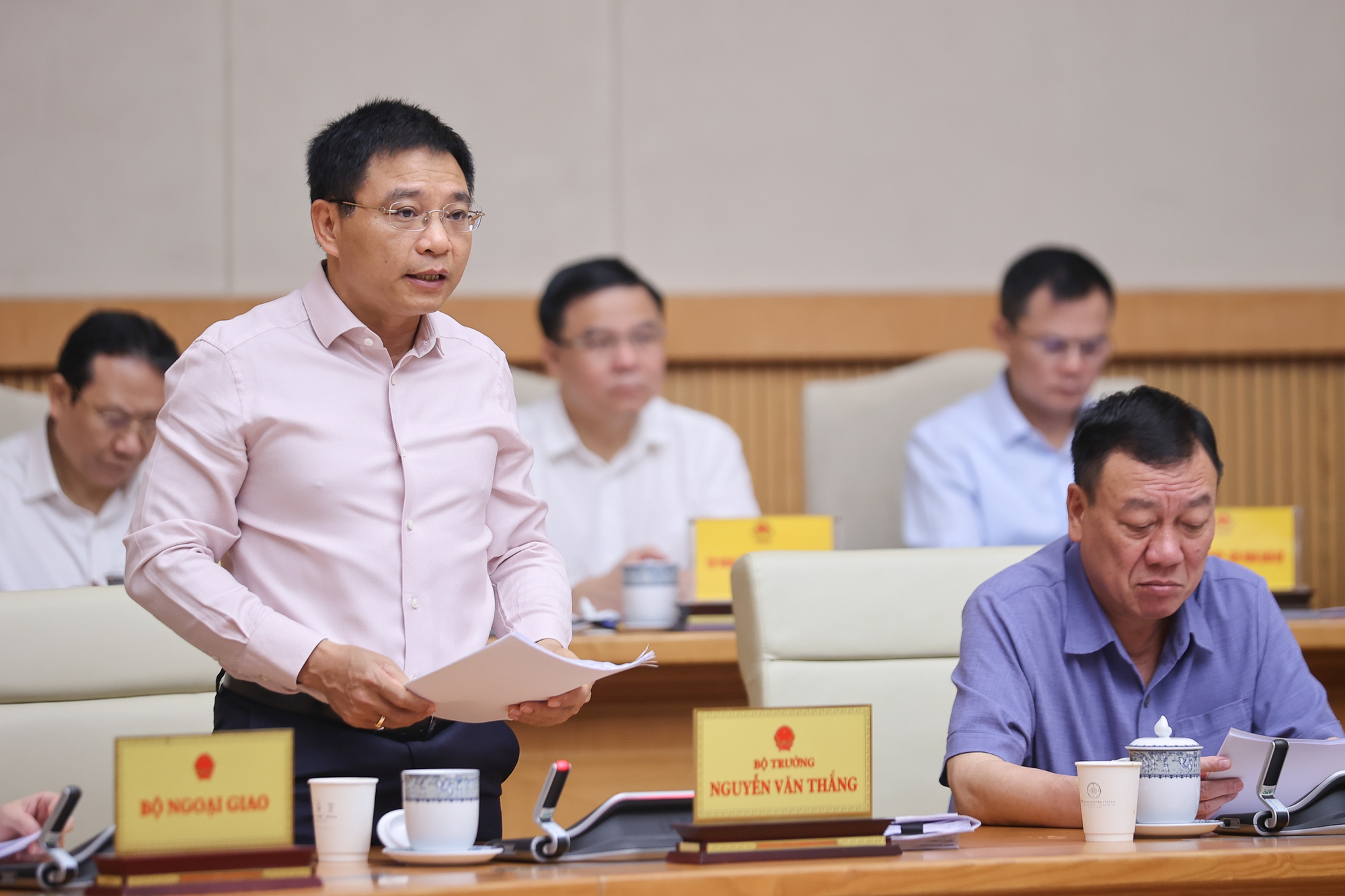Vietnam's socio-economic situation has maintained a positive trend for the first seven months of the year, Finance Minister Nguyen Van Thang reported at a regular government meeting on 7/8.
Many key indicators have shown improvement compared to the previous month and the same period last year. The consumer price index (CPI) for the seven-month period increased by 3.26% year-on-year. Credit growth is strong, and the average new lending interest rate continues its downward trend. The stock market surpassed 1,500 points, with positive performance in both liquidity and cash flow. Vietnam's trade balance for the first seven months showed a surplus estimated at 10.2 billion USD.
Traditional growth drivers continue to be promoted. Total registered foreign direct investment (FDI) for the seven-month period reached nearly 24.1 billion USD, a 27.3% increase compared to the same period last year. Meanwhile, total retail sales of goods and consumer services revenue increased by 9.3%, and international tourist arrivals surpassed 12.2 million (up 22.5%).
Production and business activities have also seen growth. The industrial production index (IIP) for the seven-month period increased by 8.6%, with the processing and manufacturing sector reaching 10.3% growth. New orders are returning, and the Purchasing Managers' Index (PMI) reached 52.4 points in July.
 |
Finance Minister Nguyen Van Thang reports at the government meeting on 7/8. Photo: VGP |
Finance Minister Nguyen Van Thang reports at the government meeting on 7/8. Photo: VGP
According to the Minister, over 174,000 businesses have entered or resumed operations nationwide in the first seven months. Total registered capital added to the economy exceeded 3.3 quadrillion VND, marking a 93.7% increase year-on-year. Concurrently, nearly 536,200 new household businesses were established, a 165% increase.
These macroeconomic factors set the stage for Vietnam to achieve its 8.3-8.5% growth target for the year, according to Minister Thang.
However, he acknowledged that immediate and long-term challenges remain significant, urging all levels and localities to proactively fulfill their assigned tasks.
Some of the challenges highlighted by Minister Thang include pressure on exchange rate and interest rate management, slow implementation of several tasks, and institutional and legal frameworks that haven't kept pace with development needs.
To achieve this year's growth target, the Ministry of Finance suggests that policymakers need to boost exports, develop trade by expanding into new markets, and continue to improve institutions and the business investment environment.
Phuong Dung












